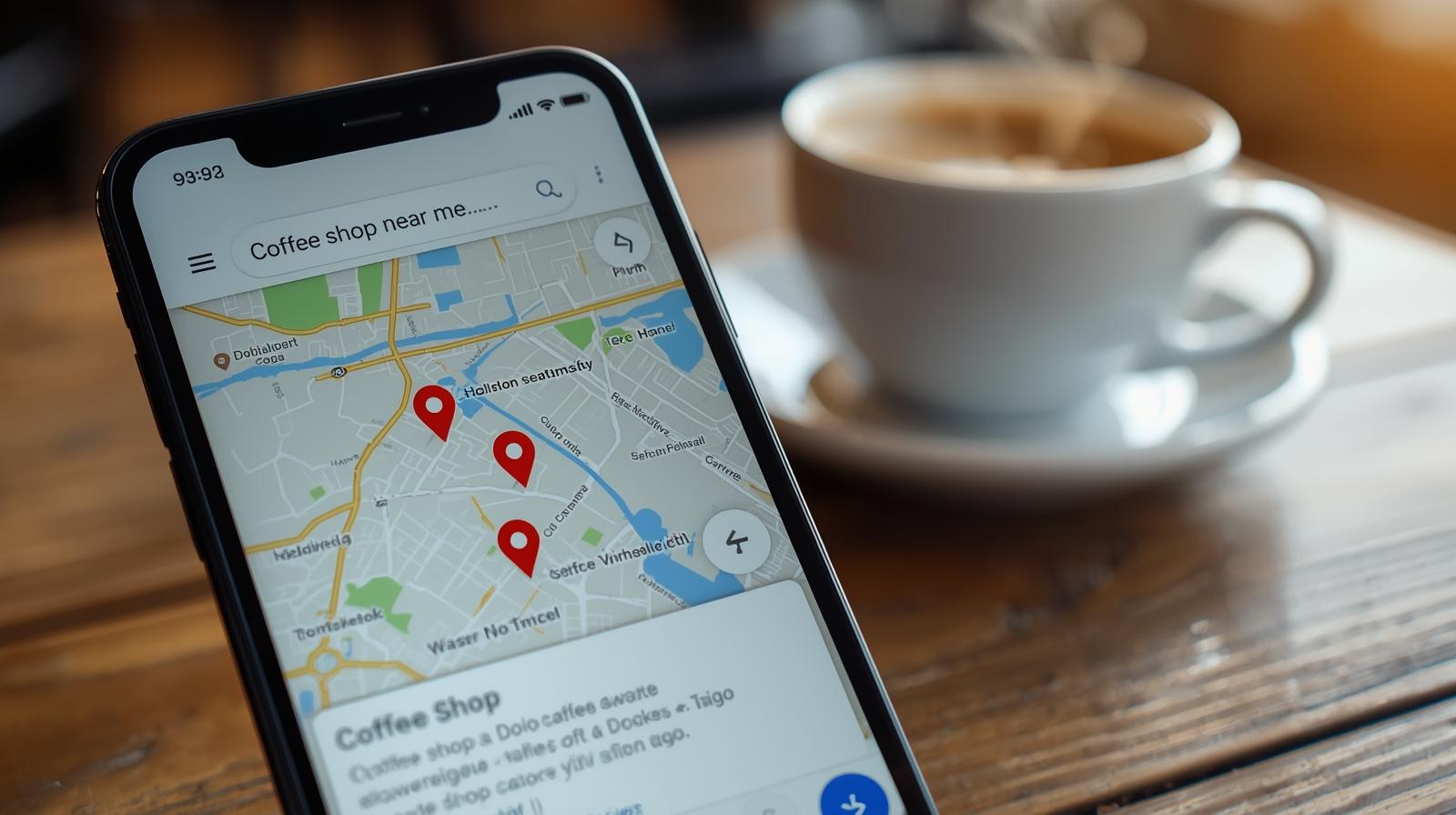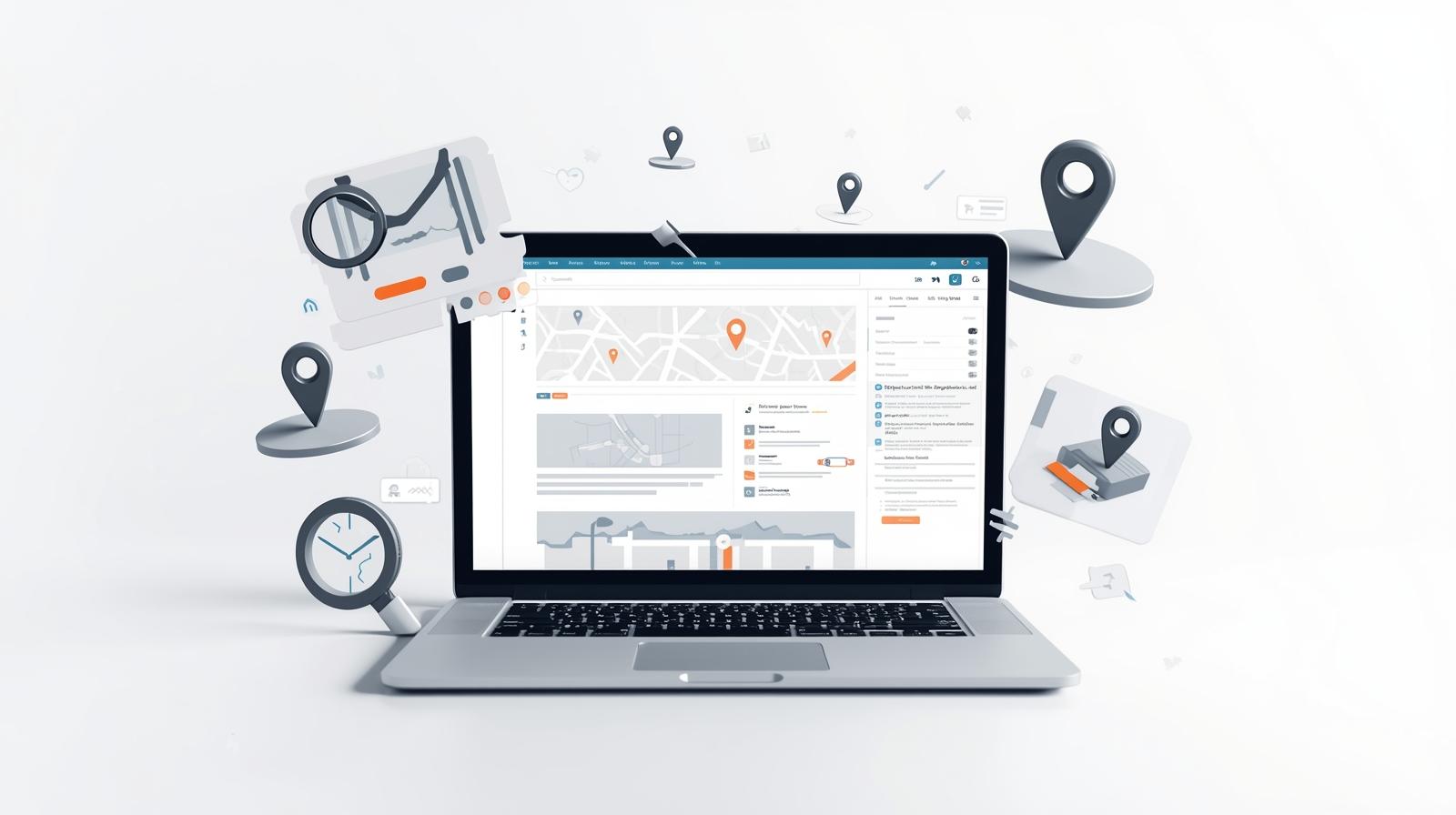Introduction
For small and medium-sized businesses, getting noticed online can feel like an uphill battle. Fortunately, that is where Local SEO comes in. Local SEO, short for local search engine optimization, is the practice of improving your online presence so your business appears whenever nearby customers search for your products or services.
It is especially crucial for brick-and-mortar stores, service providers, and local brands that rely on community visibility.
Local searches are incredibly powerful. In fact, studies show that most people who conduct a local search on their phone visit a store within a day, and many of them make a purchase.
Whether someone types “coffee shop near me” or “best dentist in [city],” businesses that have invested in Local SEO are more likely to show up in those search results. Moreover, the right strategy not only boosts online visibility but also drives more foot traffic, phone calls, and online sales.
This beginner-friendly guide will break down the essentials of Local SEO step by step. By the end, you will understand how it works, why it matters, and the simple strategies you can start using today to attract more local customers.
What is Local SEO?
Local SEO (Search Engine Optimization) is the process of optimizing your online presence so your business appears in local search results whenever people nearby search for products or services you offer. For example, if someone types “coffee shop near me,” Local SEO helps your café show up.
Difference Between Traditional SEO and Local SEO
Traditional SEO focuses on improving visibility on a national or global scale. In contrast, Local SEO zeroes in on location-based searches, helping you attract customers in your immediate geographic area.
Why Businesses Need Local SEO in 2025
By 2025, more customers are relying on mobile devices and voice search to find local businesses instantly. Without Local SEO, you risk losing visibility to competitors who are actively optimizing for “near me” searches. Therefore, for small businesses, service providers, and even local branches of big brands, Local SEO is no longer optional—it’s essential for survival.

How Local SEO Works
Role of Google Algorithms in Local Rankings
Google’s algorithm looks at specific signals like Google Business Profile activity, customer reviews, and consistent NAP (Name, Address, Phone number) citations across the web to determine local rankings. As a result, these factors directly affect which businesses appear at the top of local search results.
Local “Map Pack” Results Explained
The “map pack” is the box of three highlighted business listings that appear at the top of local search results. Securing a spot here means more visibility, clicks, and foot traffic to your business.
Importance of Proximity, Relevance, and Prominence
Google considers three primary elements when determining local search rankings:
-
Proximity: How near your business is to the person performing the search.
-
Relevance: How well your business matches the search intent.
-
Prominence: How well-known and trusted your business is (reviews, backlinks, citations, and overall authority).
In other words, these three factors together determine whether your business appears in front of local customers.
Why Local SEO is Important for Small Businesses
Statistics on Local Searches and Customer Behavior
Over 46% of all Google searches are local. Moreover, 76% of people who search for something nearby visit a business within 24 hours, and 28% of those searches result in a purchase.
Benefits of Local SEO for Small Businesses
Local SEO increases online visibility, builds trust, and generates higher conversion rates because it targets people ready to buy. In addition, it helps your business appear more authoritative and credible in the eyes of potential customers.
How Local SEO Levels the Playing Field With Bigger Brands
Big brands may have larger budgets, but with geo-targeted keywords, citations, and optimized Google Business Profiles, small businesses can rank higher locally. As a result, customers often prefer convenient, trustworthy local businesses, giving smaller players a competitive advantage.

Key Local SEO Ranking Factors
When it comes to local search ranking factors, Google evaluates several signals to determine which businesses show up in local results. Therefore, understanding these elements is essential because even small adjustments can dramatically improve your visibility in search and map listings.
Google Business Profile Optimization
One of the most influential ranking factors for local SEO is your Google Business Profile (GBP). First, claiming and verifying your profile ensures that Google recognizes your business as legitimate.
After verification, it is important to add accurate business details, especially your name, address, and phone number (NAP). Consistency here builds trust with both customers and search engines.
Moreover, to improve engagement, upload high-quality photos, select the right business categories, and list your products or services. Ultimately, a well-optimized GBP not only helps you appear in the “map pack” but also encourages potential customers to click through.
NAP Consistency Across the Web
Google cross-checks your business information across multiple directories to confirm accuracy. If your name, address, and phone number differ from one platform to another, it may harm your rankings.
Maintaining NAP consistency across listings like Yelp, Yellow Pages, Bing Places, and niche industry directories signals reliability. Consequently, each consistent citation reinforces your business’s credibility and boosts its chances of ranking higher in local search results.
Customer Reviews and Ratings
Online reviews are a powerful driver of both rankings and customer trust. Google rewards businesses with steady streams of genuine, positive reviews because they reflect strong reputation and customer satisfaction.
Therefore, encourage satisfied customers to leave reviews on your Google profile and other platforms. Additionally, responding to reviews—whether positive or negative—demonstrates attentiveness and builds authority. As a result, this strengthens customer relationships and shows Google that your business is active and trustworthy.
On-Page Optimization for Local SEO
A well-structured website is the foundation of any successful local SEO strategy. In particular, on-page optimization ensures that search engines understand what your business offers and where you are located. When optimized correctly, your pages can rank higher for local intent searches like “plumber in Miami” or “best bakery near me.”
Local Keyword Research Tips
Start with local keyword research by combining your service or product with a specific location. For instance, instead of just targeting “digital marketing agency,” focus on “digital marketing agency in Miami.” These city + service keywords attract customers who are most likely to convert because they are actively searching nearby.
Free tools like Google Keyword Planner, Ubersuggest, or even the “People Also Ask” section in search results can help uncover relevant local queries. Remember, aim to include these terms naturally in your copy, rather than forcing them into every sentence.
Optimizing Title Tags, Meta Descriptions, and Headers
Your title tags and meta descriptions are the first things users see in search results. Include your primary local keyword along with your city or neighborhood to improve click-through rates.
For example:
-
Title tag: “Affordable Digital Marketing Agency in Miami | Brand Name”
-
Meta description: “Book a trusted Miami digital marketing agency. Tailored strategies, proven results, and local expertise to grow your business online.”
Within your content, structure your headers (H2s and H3s) to highlight services and locations. Ultimately, clear headings help both readers and search engines understand your page’s relevance.
Adding Location Pages for Multiple Branches
If your business operates in multiple areas, create dedicated location pages for each branch. Each page should include unique descriptions, directions, reviews, and local photos. As a result, this not only strengthens your chance of ranking in different cities but also provides customers with accurate, location-specific details.
Schema Markup for Local Businesses
Structured data, also known as schema markup, gives search engines additional context about your business. By adding Local Business schema, you can highlight essential details like address, phone number, opening hours, and reviews.
For example, schema markup allows Google to display your business’s hours or customer ratings directly in the search results, making your listing more attractive and clickable. Tools like Google’s Structured Data Markup Helper or Schema.org provide templates that can be easily implemented.

Common Local SEO Mistakes to Avoid
Ignoring Google Business Profile Updates
Failing to update hours, services, or contact details can confuse customers. Instead, refresh your profile regularly with accurate info, photos, and posts.
Inconsistent NAP Details
Mismatched details across platforms weaken credibility. Therefore, double-check all listings.
Overlooking Reviews and Engagement
Ignoring reviews damages reputation. By responding promptly and encouraging feedback, you strengthen trust and authority.
Keyword Stuffing With City Names
Overusing city-based keywords looks unnatural and can hurt rankings. Instead, focus on natural, strategic placement in key areas.
Final Thoughts: Getting Started with Local SEO
Local SEO is essential for small and medium businesses that want to be visible where customers are searching. By optimizing your Google Business Profile, keeping NAP details consistent, and building reviews, you boost trust and attract more local clients.
Remember, local SEO takes time. Stay consistent with updates, keywords, and customer engagement. Even small steps—like adding local keywords or encouraging reviews—can create long-term growth. Therefore, start optimizing today to build visibility, credibility, and steady success in your local market.
Ready to optimize your website for maximum local visibility? Explore Alphanetx’s SEO and web design services to get started today.


